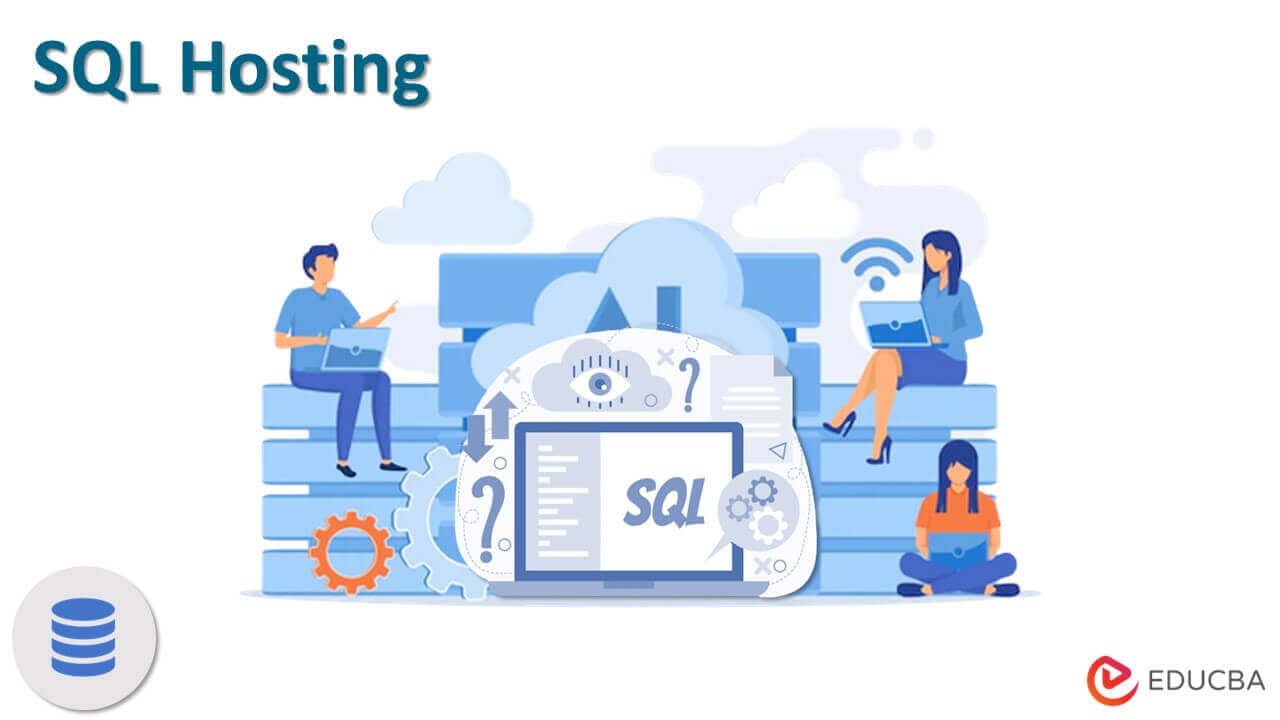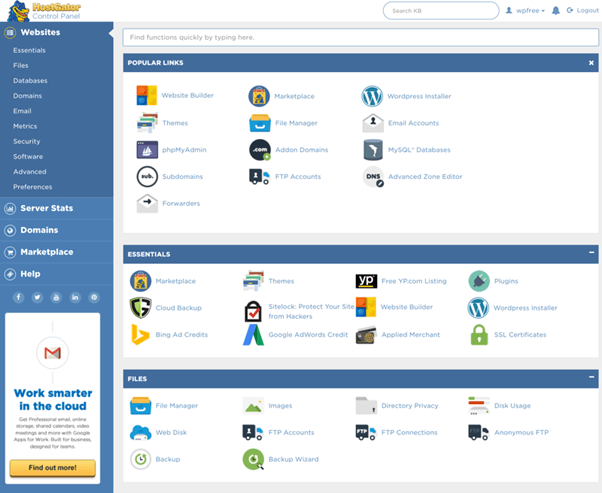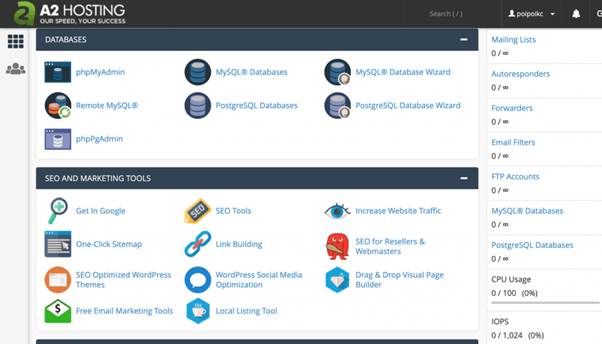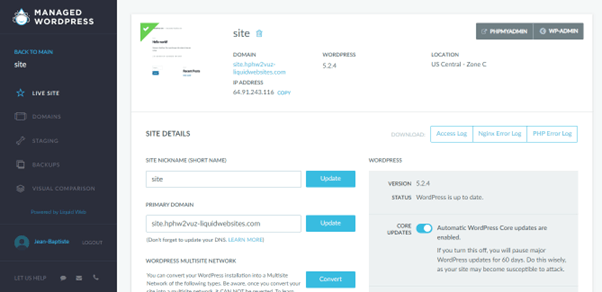Updated March 17, 2023
Introduction
SQL Hosting is a process of managing your database through the use of SQL. Since SQL is a simple language, it becomes easier to manage the database, be it by creating new data, deleting existing data, retrieving data, executing queries, or editing the data present within the database. In order to perform these operations database has to be accessed through a web server. If the webserver is managed by an Internet Service Provider, then you need to take the help of SQL Hosting to proceed with the database.
Key Highlights
- SQL Hosting is crucial for a website development project.
- SQL Hosting allows the user to have complete control over the database using Structured Query Language.
- SQL Hosting can be done over shared databases, cloud-based servers, and private servers.
- The topmost hosting service providers are A2 Hosting, Web Gator, and Liquid Web.
SQL Hosting Server
- A website must have the authority to retrieve and store data from the database.
- But this can be made possible only if the website has access to a suitable DBMS working with SQL language.
- You need to figure out a suitable SQL hosting plan in case the website is being hosted by an ISP.
- Some of the most popular SQL hosting server databases are MySQL, MS Access, Oracle, and MS SQL Server.
- There are a few different alternatives for hosting your SQL database when migrating your website to a dedicated setup or cloud server.
- The best option will rely on a few distinct criteria. You need to know the version of SQL you are currently using.
- There are three versions: MS SQL, SQL Express, and My SQL.
- Next, you need to have a proper understanding of the total number of databases you have, along with their capacity.
- This will allow you to make a selection of the perfect SQL for hosting purposes.
Options Available for SQL Hosting
The three main options for SQL hosting include:
1. Shared SQL Databases
- In this case, SQL databases are hosted in a shared environment on a single physical dedicated server, so you only pay for the space and databases you utilize.
- Databases are supplied in 100MB space blocks, so you just buy what your database needs right now.
- The advantages of shared SQL are that it is incredibly affordable for people with tiny databases, and there are no issues to fear when it comes to licensing or administration.
2. Using your cloud server to host the SQL
- As your website is hosted on the same server, you will license and install SQL here.
- The most economical option is to use SQL Express or MySQL, as there is no license price from Microsoft.
- Those using the licensed version must pay the monthly SPLA licensing fee.
- This solution is a straightforward, cost-effective approach to having limitless databases in a dedicated environment for individuals with larger databases or those concerned about shared hosting security/availability.
- The cost of licensing will vary depending on the SQL edition that your database requires.
- However, the majority of websites operate perfectly with the incredibly affordable Microsoft SQL Web Edition.
3. SQL Hosting on a Private Server
- For those looking for high performance, SQL hosting on a private server is the best option to consider. It also promises top-notch security.
- When hosting is done on a private server, it results in gaining access to a wide range of servers on the user’s machine itself, be it mail, database, or web.
- As a result, the chances of security threats become minimal.
- Also, such an option assures the SQL hosting process achieves peak performance using the best optimization techniques and totally dedicated resources.
- Just one word; you have to get the SQL edition licensed to avoid future juggles.
Top SQL Hosting
- While there are hundreds of hosting service providers available, some among them hold the edge.
- Here, we have tried to pick the top SQL hosting service providers as per their reputation and services: Host Gator, A2 Hosting, and Liquid Web.
- When choosing a hosting provider, you must focus on certain aspects of the provider.
- Always look for a provider offering excellent support, daily backup options, the best speed, and the most appropriate server environment.
- Along with these aspects, you also need to focus on user reviews and expert opinions before deciding on the best hosting provider.
Choosing the Perfect Host
- While most of the hosting providers support My SQL and SQL Express, only a few offer support for MS SQL.
- Among the few options available, Liquid Web, A2 Hosting, and Host Gator are the best ones that support MS SQL.
a) Host Gator
- Host Gator is a relatively inexpensive hosting option that offers reliability.
- The MS Windows hosting plans from Host Gator include IIS and ASP. NET, and PLESK Control Panel.
- The best part about Host Gator is the option to avail of an unlimited number of email accounts and sub-domains.
- Host Gator support team is available 24/7 via email, chat, and phone.
(Image Source: Hostgator)
b) A2 Hosting
- A2 Hosting comes with a wide range of hosting options.
- The presence of the PLESK Control Panel is a big bonus. It helps in managing every aspect of the site with ease.
- A2Hosting also comes with shared hosting options. If you are using Windows, you will be pleased to figure out that the Reseller and VPS hosting options are available.
- Then, there is the TURBO hosting option that offers tremendous speed with limited users for a server comprising an SSD storage option.
- Although A2Hosting is not the cheapest option available, it promises true value addition to the prospect.
(Image Source: A2 Hosting)
c) Liquid Web
- Arguably the most expensive of the three options, Liquid Web offers fully customizable hosting plans.
- If you are using MS SQL, Liquid Web makes the database available through the cloud, thus offering the option to use it from either Windows or LINUX platforms.
- Liquid Web offers different hardware nodes, the best backup option, and fast availability.
(Image Source: Liquid Web)
Comparison Between My SQL and MS SQL
You should not confuse MS SQL with My SQL. These are two different databases. There are distinctive differences between these two.
|
My SQL |
MS SQL |
| Open-sourced database | Proprietary database |
| Has a detailed set of features | Has few features |
| It is free to use | You need to purchase the license |
| It supports only the English language | Can use with various kinds of languages |
| It is exposed to attacks from SQL Injection | It is highly secured |
| It supports several common operating systems, such as Linux, Windows, and Mac OS | It works only in the windows operating system |
Conclusion
When designing a website, you need to chalk out the blueprint properly. The right type of server and database to be used with the website is crucial. A suitable DBMS is necessary to ensure that it works perfectly well with your website. A reputed hosting service provider will further smoothen the process and performance of your website.
Frequently Asked Questions
Q1. Is MS SQL and MYSQL the same?
Answer: No, both are different. While MS SQL is a proprietary-sourced model, MYSQL is open-sourced.
Q2. What is Liquid Web?
Answer: Liquid Web is a SQL Hosting provider and offers fully customized web hosting plans. It supports both Windows and LINUX platforms.
Q3. What is SQL Server Hosting?
Answer: SQL Server Hosting is the process of managing a database for your website. Using this hosting option, you can add, modify, delete, and create data in the database.
Recommended Articles
This article is a guide to SQL Hosting. Here you learned about the choices available for SQL Hosting and the way to choose the best SQL Host. You can refer to these articles to have more knowledge about SQL Hosting,






